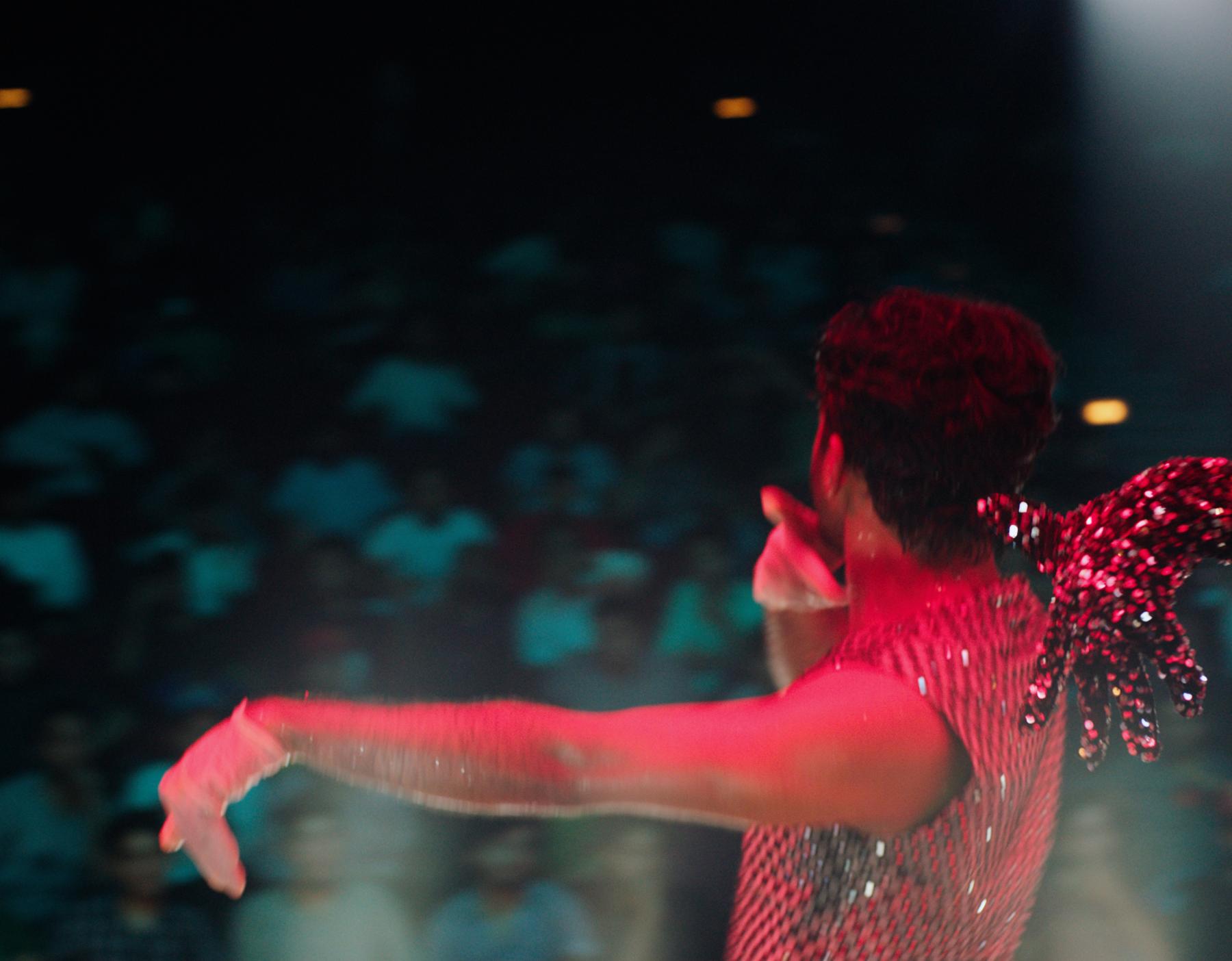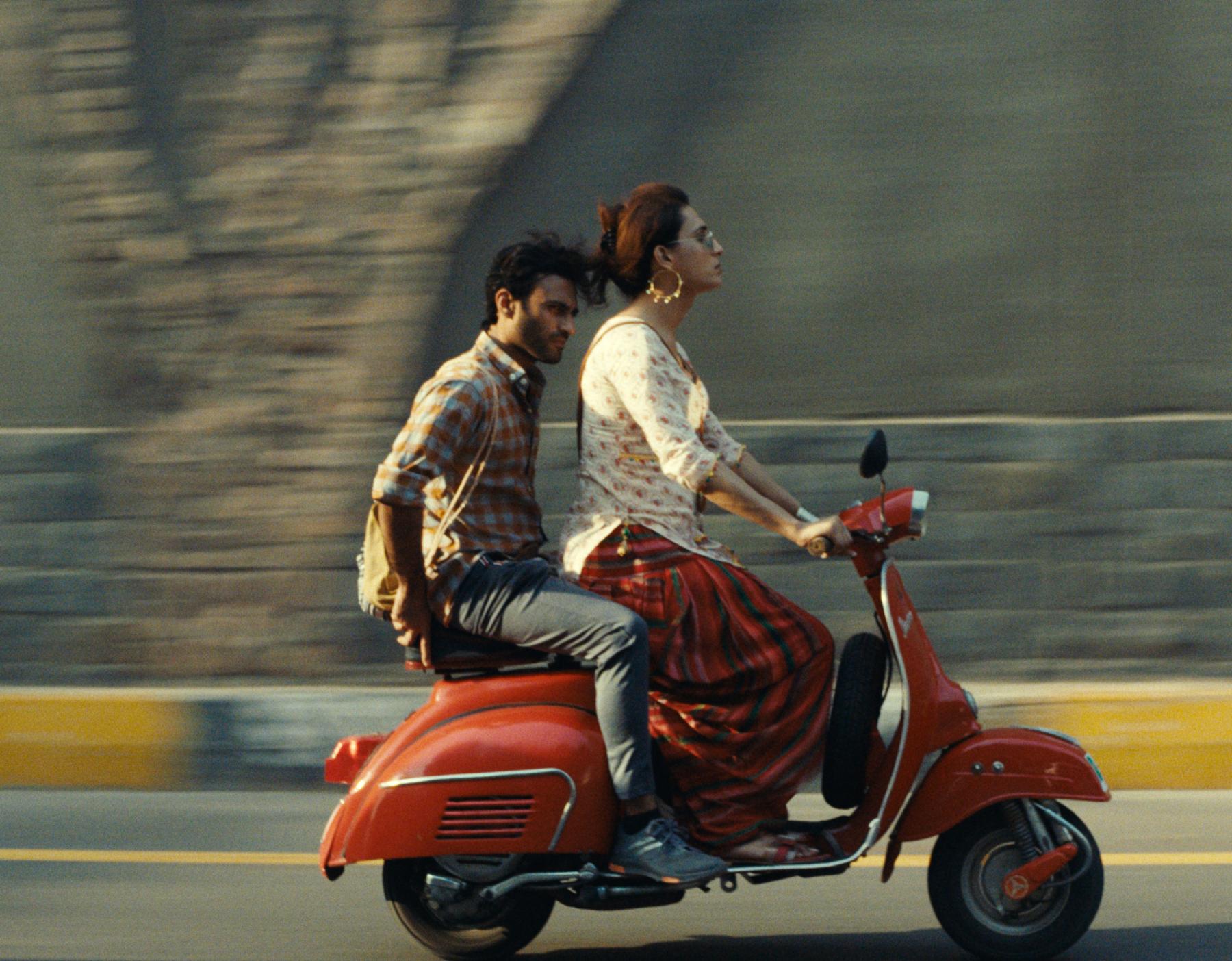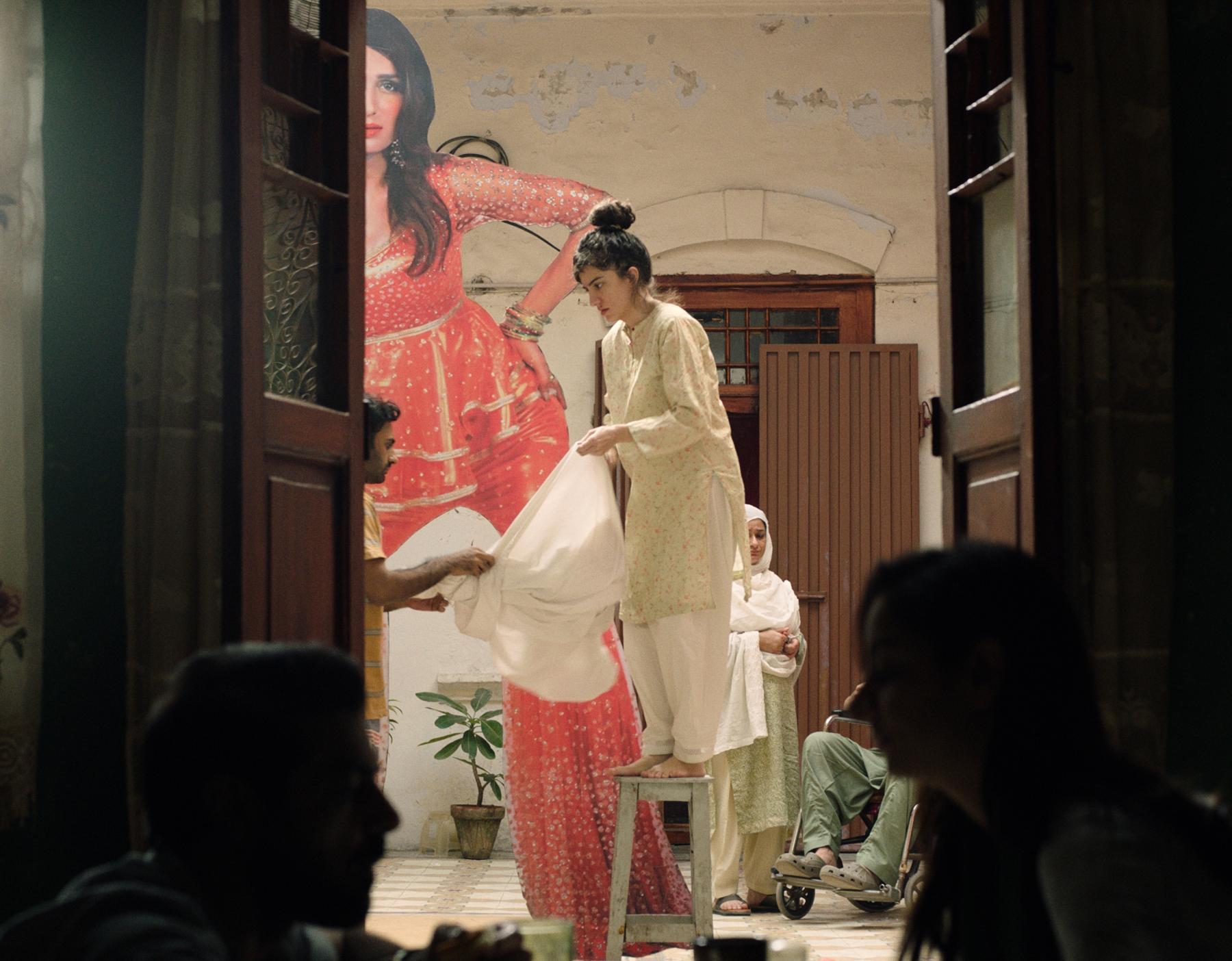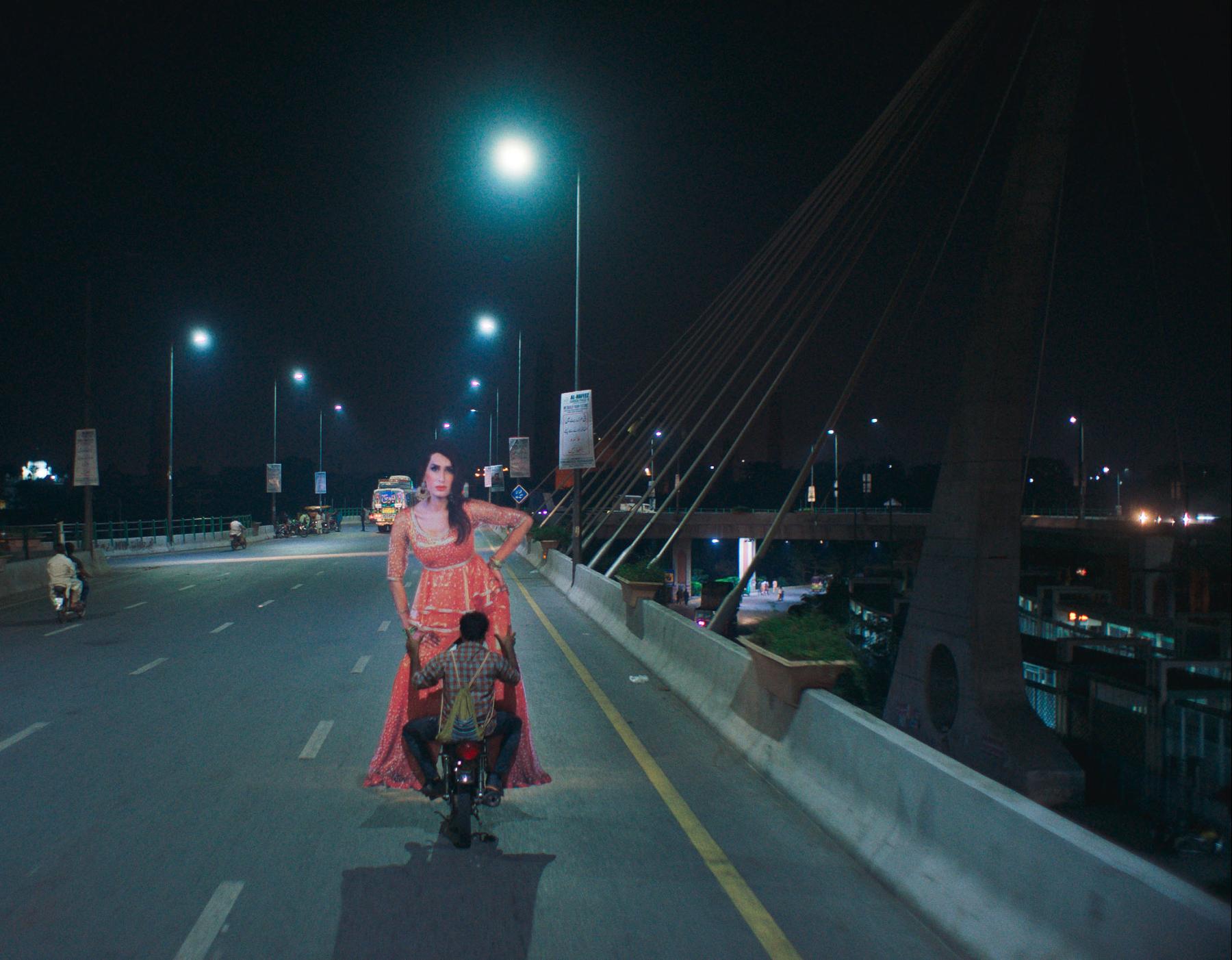Joyland: The Slippery Terrain between Tradition and Aspiration
Contains Spoilers.
“Joyland” literally refers to a fairground in the film, first seen when daughters-in-law Mumtaz and Nucchi board an amusement ride and, for a few moments, there is unbridled joy. The film deals with such instances of pure banter, kinship, and solidarity. In equal measures, it deals with the male gaze, despairing compulsions, coercion, and defeat. In all of this, a quiet resilience surfaces through the protagonists, each of whom straddles traditional conformism and present-day aspirations. Joyland (2022), directed by Saim Sadiq, focuses on a few characters navigating these awkward, absurd tensions in contemporary Pakistani society. Screened at the Dharamshala International Film Festival, the film premiered to an Indian audience on November 5, 2022.

Haider (played by Ali Junejo) and Mumtaz (played by Rasti Farooq) are both outliers in a family desperate for a male child. Their marital union was entered into on the soft agreement that Mumtaz would continue to work after marriage, which she does. Haider is seen helping with the housework and acting as a childminder to Nucchi’s (played by Sarwat Gilani) daughters. His masculinity is questioned by the other male members of his family on multiple occasions, rendering him reticent when Mumtaz is asked to give up her job by the family patriarch (Haider’s father, played by Salmaan Peerzada). The occasion arises when Haider lands a job at the local “erotic theatre” as a background dancer for Biba (played by Alina Khan), a transwoman trying to climb the ranks as a stage performer. Haider lies about his designation to his family in fear of being apprehended against notions of respectability—he declares that he has been hired as a Theatre Manager. In Haider’s late awakening to masculine assumption, Mumtaz becomes a victim to the weight of familial obligations that she was, nevertheless, always expected to fulfil. Thus begins the descent of her personhood.
Biba is introduced as a woman brimming with self-confidence—commanding her troupe, employers, and competitors alike. We are introduced to her vulnerabilities in the same breath, which establishes her assertion and success against the indignities and conflicts she encounters in daily life. Biba is used to working with and against an aggressive male gaze. Haider’s gentle gaze then serves as a positive foil and gradually brings them closer to each other. But Biba also becomes a litmus test for Haider’s burgeoning sexuality, as he is unable to (or perhaps, refuses to) gauge her inner world. Although founded on mutual affection, their coupledom is doomed as Biba refuses to sublimate her personhood into another’s desires.

Through these characters and their encounters, the film focuses on notions of honour that come into friction with modern individuals seeking the truest versions of themselves. When Haider attempts to confess to Mumtaz about his affair with Biba (and perhaps, extended revelations about his sexuality), all he manages to say is, “I don’t know.” Oftentimes, there is no vocabulary for what transpires. The sedentary patriarch is also put in a vulnerable position because he does not know how to accept help. When an elderly neighbour professes her desire to live with him as a companion, the proposition is quickly buried as an anomaly that cannot be entertained. Everybody in the diegetic world seems to be invested in somehow maintaining the fragile social fabric that lends comprehensibility to the family unit. And in this manner, they inadvertently asphyxiate voices that are defiant or simply misfits in this matrix.

It is poignant, then, that the film opens with the event of birth—the coming of Nucchi’s fourth daughter, who was expected to be welcomed as a son. The collective disappointment of the family (including Nucchi) registers as the failure of an intense faith in the power of the arbitrary, equating the arrival of a son with societal validation. So when Mumtaz is declared pregnant with a son, it is a matter of great joy for everyone. The information promises the possibility of a male heir in the generation, thereby improving Haider’s relationship with his father and his status as a spouse. None of this escapes Mumtaz’s gaze, as she is slowly relegated to the sidelines and celebrated primarily as a gestator for the male child. With aching consideration, the film empathises with Mumtaz’s reluctance to be a mother. She tries various covert methods to keep the pregnancy from maturing, ultimately running away before returning to the familiar. In the end, she dies by poisoning herself after engaging in a freewheeling game of chase with some kids. Even in her death, it is the loss of the unborn male child that takes precedence before Nucchi stands up on her behalf and puts things into perspective. However, I cannot look at Mumtaz’s gesture as purely one of helplessness. One can read it as the agonising inevitability of an unwanted contraception that would have bound her in patriarchal constraints for the rest of her life. But Mumtaz was also never able to align herself with convention, and refused to be a conduit for patriarchal promise while invisibilising herself. Not only did she subtract herself entirely from these expectations, she also took away their agency in determining her personhood on terms that were not her own. Mumtaz’s palpable absence manifests as a revelation of the fault lines in the family, rendering its anchors unstable.

Director Saim Sadiq delves into these complications in the film through song, dance and luminescent interruptions that reflect the characters’ inner yearnings in dreary settings. The recurrent use of neon creates escapist fantasies against patriarchal trappings, attributing a whimsical distinction to each relationship. In portraying Biba’s upward quest for a place in an LGBTQ-phobic society, the film offers a layered narrative that recognises, but does not fetishise, the struggles of the trans-community. The radical potential of the film is confirmed by the recent, unconstitutional ban on its release by the Pakistan Ministry of Information and Broadcasting. After having selected Joyland as the country’s first official entry to the Academy Awards, the Ministry reversed its position on the basis of written complaints from extremist factions. Their complaint states that the film does not abide by “moral standards”—an ambiguous phrase that has previously been weaponised against subcontinental films that dared to explore queerness. The event is symptomatic of right-wing propaganda against liberal narratives that seek to explore the human against the social—in tandem with the aggressive rise of right-wing extremism globally. The film was finally certified for release the day before yesterday, albeit with major cuts. As we reel simultaneously from relief and exasperation, I am glad that there will be more bodies to witness this narrative and the ordeals that parochialism demands of all those who witness it, further it, and wither under it.
To learn more about the films screened at the 2022 edition of DIFF, please click here, here, here and here.
All images from Joyland (2022) by Saim Sadiq. Images courtesy of the director and the Dharamshala International Film Festival.




